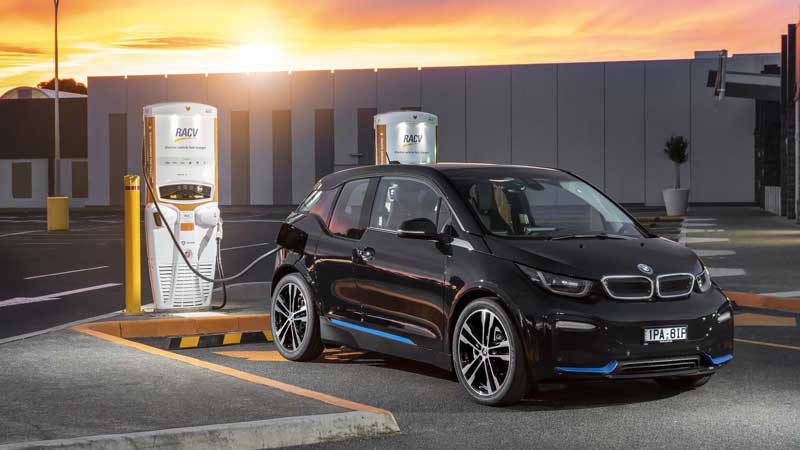BMW has announced a $1500 discount for businesses seeking to purchase a new BMW or Mini electric vehicle for company use – enough, it says, to cover charging costs for up to 30,000km of travel.
The cash sweetener was announced by BMW Group on the heels of a federal budget that offered little by the way of incentives for the uptake of electric vehicles in Australia, which already lags well behind on both EV adoption and supporting policy frameworks.
BMW Group Australia CEO Vikram Pawah said the car maker’s own incentive, targeting small to medium businesses, should act as a catalyst for local market growth and “finally” help bridge the gap with high uptake markets in Europe, North America and Asia.
“For BMW Group, investing in electro-mobility technology development for business should be a given in Australia,” Pawah said.
“Countries such as the USA, Norway and China have all invested in a strong charging network and offered monetary incentives to both commercial and private buyers of plug-in hybrid or fully electric vehicles, leading to high uptake across the board in these markets.”
As noted above, the Morrison government has stuck with recent Australian tradition and largely snubbed electric vehicles in its 2020 federal budget, while delivering billions of dollars in funding for new roads, and some for the construction of new diesel fuel storage infrastructure.
As Michael Mazengarb reports here, a $7.5 billion transport package focuses on funding new major road and rail links and upgrading key highways, but offers little support for zero-emissions transport and no new funding to support the roll out of electric vehicle charging networks.
As BMW noted on Wednesday, this leaves only the September allocation of $74 million for a “Future Fuels Fund” to enable more infrastructure and remove “blackspots” for regional charging and refuelling, including both hydrogen and EVs.
That funding was announced as part of a $1.9 billion “low emissions” funding package, including a 10-year funding agreement for the Australian Renewable Energy Agency, which will manage the Future Fuels Fund.
In its statement, BMW Group said it was confident that the Future Fuels offering would serve at least to mark a ‘line in the sand’ for manufacturers, enough to boost the local market’s adoption of electric vehicles.
Currently, BMW’s only EV offering in Australia is the i3, the updated version of which was released here in 2019. The first all-electric Mini was launched onto the Australian market in July of this year, a three-door hatch with a 233km range, a fast-charging battery, and a price tag that will set you back just under $A55,000.
But there are more to come – BMW’s latest electric car, the iX3, was unveiled globally in July and is due to arrive in Australia in mid 2021. And BMW, like so many other major automakers, has big electric dreams beyond that, but how many more models will come to Australia, and how quickly, will depend on the progress of the market.
“We will continue to introduce as many of these vehicles to our local product line-up, but the government has an important role to play in influencing public mindset about the vast benefits of electrified vehicles,” Pawah said on Wednesday.
“While [BMW’s] incentives are focused on business, they are a positive step in enlightening the wider public around electro-mobility and addressing the lack of knowledge about electric vehicles.”

Sophie is editor of One Step Off The Grid and deputy editor of its sister site, Renew Economy. Sophie has been writing about clean energy for more than a decade.

